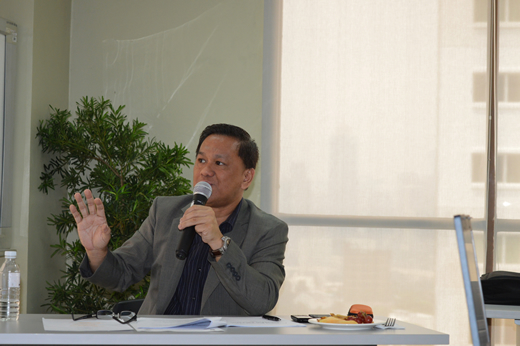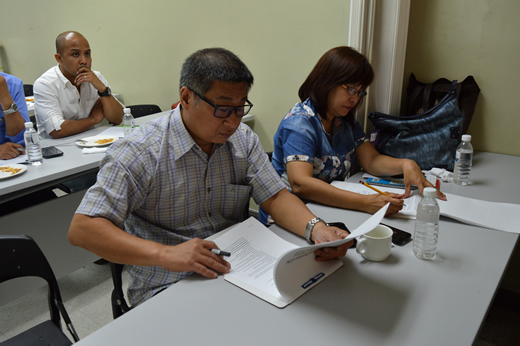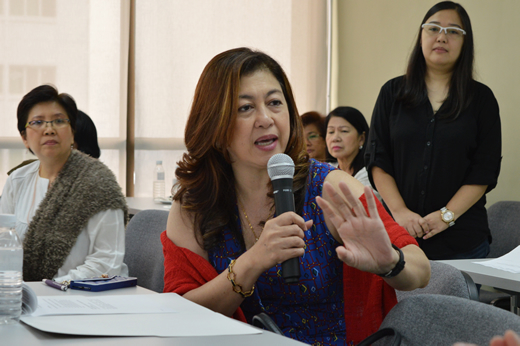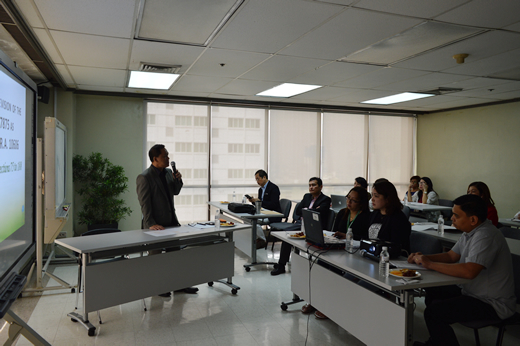PhilHealth
home | contact us | sitemap | disclaimer
News
PhilHealth conducts stakeholders’ consultation on revisions to IRR of RA 10606 October 7, 2016
THE Philippine Health Insurance Corporation (PhilHealth) recently held a stakeholder’s Public Consultation at its Central Office in Pasig City on the proposed changes in the Implementing Rules and Regulations (IRR) of Republic Act 10606 or the PhilHealth Charter of 2013.
The proposed revision in the IRR was initiated by the Sub-Committee of the PhilHealth Board of Directors on Appeals on Administrative Cases (CAAC) in coordination with the Legal Sector through the Arbitration Office. The revisions covered Sections 75-188 of the IRR which primarily dealt with the quasi-judicial powers of the Corporation in relation with violations committed by stakeholders consisting of healthcare providers, healthcare professionals and members against the PhilHealth Charter and its IRR, PhilHealth Issuances and other policies relative to the implementation of the National Health Insurance Program (NHIP).
The proposed revision of the IRR coincided with the recent transfer of the Arbitration Office from the Legal Sector to the Office of the Executive Vice-President and Chief Operating Officer (EVP and COO) to give the latter independence in the objective adjudication of administrative cases against erring healthcare providers and members.
The IRR revision was primarily undertaken to streamline its administrative processes with the end in view of facilitating and hastening the disposition of administrative cases filed before the Corporation against healthcare providers, healthcare professionals and members for a more efficient implementation of the NHIP.
Present during the public consultation were representatives from the Philippine Medical Association (PMA) and the Integrated Midwives Association of the Philippines (IMAP). The session was also participated in by PhilHealth-accredited healthcare institutions (HCIs) that included the Philippine General Hospital, Jose Reyes Memorial Medical Center, Ospital ng Makati, Armed Forces of the Philippines Medical Center, Far Eastern University – Nicanor Reyes Memorial Medical Foundation, Chinese General Hospital and Medical Center, Valenzuela Citycare Medical Center, Mayor Juan R. Sanchez Health Center, Asia Renal Care Philippines Inc. and Rizal Provincial Hospital System-Morong Main.
Some of the members of the CAAC represented by Dr. Francisco Lopez, Dr. Anthony Leachon and Karen Villanueva were similarly present during the public consultation to provide additional insights and answers to clarificatory matters raised during the open forum.
Atty. Alfredo B. Pineda II, PhilHealth Vice President for the Arbitration Office presented the specifics of the proposed IRR revision. Pineda emphasized that a substantial part of the proposed revision involved processes and internal procedures aimed at streamlining and delineating the specific roles of concerned Offices within the Corporation in connection with its quasi-judicial powers in fact-finding, investigating, prosecuting and adjudicating cases against erring healthcare providers and members.
Part of the procedural revisions in the IRR included the thrust on generally limiting the conduct of clarificatory hearings in the adjudication of administrative cases complemented by the shortening of the rendition of the Arbitration Office’s Decision from then 120 days to within 60 days from receipt of the last pleading. The proposed revised provisions also directed the posting of the excerpts of adverse final Decisions against erring healthcare providers and professions in the PhilHealth corporate website to properly inform members on the status of accreditation of concerned healthcare providers and professionals within their jurisdictional areas.
Pineda also discussed the proposed revisions involving substantial provisions on the removal of the fraudulent or non-fraudulent classification of offenses in the IRR. Part of the substantial revisions in the proposed IRR also included provisions on unethical recruitment of patients as well as the incorporation of the undertakings of healthcare providers and professionals contained in the Performance Commitment (PC) as part of the offenses against the IRR. The proposed revision further included the amendment and simplification of the scale of penalties on violations committed by healthcare providers.
The substantial revisions in the IRR also included the additional function of the Legal Sector in evaluating complaints to determine the possible filing of administrative or criminal cases as the circumstances and evidence may warrant against erring HCIs or healthcare professionals before the Philippine Regulatory Commission (PRC) or the appropriate Public Prosecutor’s Office as the case may be.
The proposed revised IRR on the quasi-judicial provisions of the PhilHealth Charter is expected to be finalized and published for implementation within the last quarter of this year. (END)





